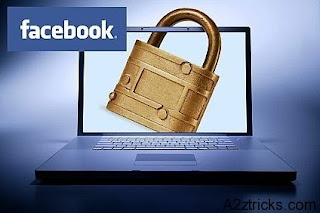
1. They sell your personal information, and you have no control over who gets it. According to CBS News, Facebook sells your information to third party vendors, such as marketers and advertisers. This policy seems to change from time to time, too, as sometimes they do and other times they don’t. Of course, a LOT of online companies sell our information, but Facebook is unique in that Facebook users generally share much more about themselves there, and provide much more sensitive information there, such as birthday, phone number, home address, family
members, daily activities. All you need to access a bank or credit card account these days is your name, address, mother’s maiden name, and birthday. It’s a disaster ready to happen.
2. Banner ads on Facebook may contain malicious software or direct you to malicious websites. Facebook does not always screen their advertisers. A scammer may create an ad with a link to a malicious website that, as soon as you visit, downloads a virus or trojan to your computer that could steal your passwords, steal your data, etc.
3. Facebook has constant security attacks and occasional breaches. In 2010, a number of security breaches and hacks were discovered. One security breach (since patched) revealed that Facebook users could read their friends’ private chats with other users. In another incidence, VeriSign’s iDefense team found a hacker selling up to 1.5 million Facebook usernames and passwords that he had stolen. And Facebook is under constant attack by phishers and hackers to obtain that goldmine of data stored there.
How to Protect Your Facebook Account
1. Customize Privacy Settings.
You need to check these settings periodically, to ensure that they are as you want them. Facebook resets all privacy settings to public default every time the site issues an update, and does not overtly alert you of this change. So EVERY TIME you see the “Heads Up! We’ve got a fresh new look!” go and check your settings. Otherwise, some or all of your sensitive, personal data is broadcast for anyone to see.
1. Sign in to Facebook. In the upper right hand corner of the screen, click “Account” and “Privacy.”
2. Click “Customize Settings.”
3. Go through each set, choosing what you wish to share and with whom.
4. It’s also a good idea to peruse the privacy options in general, to see what you can and cannot share. View your profile as other see it, too, to see exactly what you are sharing publicly.
2. Delete unused apps.
Last year, Facebook gave app developers access to your personal information (home address and phone number), then retracted. Facebook makes so many decisions, so many changes, and rarely informs users, so who knows what they’re sharing right now? Realize that the apps you keep monitor your activity and may have access to your personal information. If you have apps that you do not use, delete them. Here’s how:
1. Sign in to Facebook. In the upper right hand corner of the screen, click “Account” and “Privacy.”
2. Go to the bottom left hand corner of the screen. Click “Apps and Websites.”
3. Under “Apps You Use,” click the “Edit Settings” button. Here you can view all the apps you have installed in the past.
3. Protect yourself from Facebook viruses.
Some Facebook users fell for an email phishing scam. They received an email, supposedly from Facebook, asking them to click a link to reset their Facebook password. The links lead to malicious websites that download viruses and malware into the computer, including one virus that steals passwords. Facebook is obviously a goldmine of data and naive computer users, so it’s expected that scammers will target it. Be wary of ANY email asking you to click links. Be wary of all Facebook activity.
4. Maintain strong passwords.
You must maintain strong passwords, with long strings of letters, numbers, and symbols (if allowed). Do this for EVERYTHING, not just Facebook. Please realize that any time you use weak passwords, you open yourself up to hackers, who use computerized bots to run passwords through your account until they get it. Weak passwords threaten EVERYONE. Once a hacker gains access to your account, he has access to everyone you have listed in that account, including their phone number, home address, photos, and more. If you have problems making and remembering long passwords, use a program like RoboForm or KeePass to manage your passwords. There is no excuse for weak passwords!
5. Encourage your Facebook friends to maintain their privacy settings.
As the saying goes, your security is only as strong as your weakest connection. If your Facebook pals are broadcasting all their information about your information, it’s a threat to your security. If your Facebook pals have lousy passwords and a hacker gains access to your friend’s account, he now has access to information about you. Encourage your pals to maintain strong passwords, strict privacy settings, delete unused apps, exercise restraint with personal information. Easier said than done. (Which is why I don’t have a personal Facebook account).
All this may seem like a lot of work, but privacy IS lot of work. You have no idea the repercussions that sloppy security can have. It’s not just your privacy at stake, either– it’s everyone in your Facebook account or email account or blogging account. So roll up your work gloves and please be vigilant with your privacy and that of your friends.
6. Read the Facebook Terms of Service and Privacy policies.
Important! The Facebook Terms of Service is here. Their Privacy Policy page is here. Be aware that these policies may change at any time.
Share and Enjoy !






0 comments:
Post a Comment